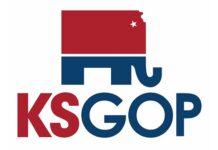Auditors are urging lawmakers to tweak an economic development program for small, innovative startup companies after finding instances where businesses left Kansas earlier than allowed by state law.
A recent legislative audit recommended shortening the length of time businesses must stay in Kansas after drawing investment as part of the angel investors program, which was started in 2004 and is set to end next year.
The audit also found that it was difficult to gauge the success of the program because benchmarks weren’t written into law, and that businesses didn’t always produce as many jobs as companies that didn’t participate in the program.
The audit comes as the program is set to expire next year unless it’s extended during the upcoming session.
Earlier this year, the House voted 103-12 to extend the program with changes, but the Senate could not vote on the bill before the session ended because of the pandemic.
The program provides $6 million in yearly tax credits to investors in certain types of innovative companies in areas such as computer systems, pharmaceutical and medical manufacturing, as well as scientific and research development services.
An accredited investor is allowed a 50% tax credit on their investment of up to $50,000, per qualified business per year.
Additionally, for each tax year, an angel investor is limited to claiming no more than $250,000 in tax credits.
The program requires businesses to stay in Kansas for at least 10 years after receiving an investment, and they’re supposed to pay a penalty if they leave early.
The audit found three instances where a business left Kansas sooner than the 10 years required by law at a cost to the state of about $340,000.
A fourth business whose investors received $25,000 in tax credits may also have left too soon, the audit reported.
The audit cited these examples:
- One business received an investment in 2012 and moved to California that year.
- Another business received investment in 2016 and moved to Missouri in 2017. It returned to Kansas in 2020 and is seeking additional incentives.
- A third business received investment in 2015 and moved to Missouri in 2016. The Commerce Department, which selects the companies that participate in the program, said it didn’t think the business was a problem because its parent company was in Kansas. The auditors disagreed because Kansas is foregoing tax revenue for the benefit of a Missouri business, regardless of where the parent company is located.
The auditors suggested it may be unreasonable to require startup businesses to remain in Kansas for 10 years since they may sell or merge in a much shorter period of time.
Commerce officials told the auditors that fewer businesses are likely to apply for the program because of the 10-year requirement.
The auditors said the Commerce Department should enforce the 10-year requirement, or the Legislature should shorten it.
The Commerce Department already made an attempt earlier this year to shorten the requirement to five years for most businesses in legislation that would have extended the program.
“Tech startups rarely will last 10 years,” David Soffer, the department’s legislative and policy director, told lawmakers earlier this year.
“Either they are successful and are bought out, or they do not survive,” he said. “Either are likely to happen before the 10 years occur.”
The Commerce Department is planning to seek a five-year extension of the program again in the upcoming legislative session.
It also plans to ask for these changes in the law that were considered earlier this year:
- Increase the tax credits received from an investment in a single business to $100,000 from $50,000.
- Increase the total yearly tax credits received for an investor to $350,000 from $250,000.
- Allow an investor to seek a tax credit up to 50% of their investment instead of requiring a tax credit equal to 50%.
Commerce Secretary David Toland, now the lieutenant governor, said the audit showed the value of the program and called for its renewal.
“We believe that this audit clearly shows the value of the Angel Investor Tax Credit
Program to the state,” Toland said in a letter responding to the audit.
“The program is meant to assist innovative Kansas companies so they can compete with companies that have easier access to angel investors (or) early-stage capital,” he wrote.
“As one of the few programs in our state focused on innovative entrepreneurship, we must continue to support this crucial program,” he wrote.
The legislative audit conducted several different analyses of the angel investor program over the last decade.
In some case, auditors could not make any conclusions about the effectiveness of the program because there were no established benchmarks to gauge the program’s success.
For instance, the program cost the state about $20.2 million in tax credits in exchange for $51.5 million in investment from 2015 to 2018 for 78 startups companies.
But auditors said they couldn’t determine if the program was meeting its goals.
“The Legislature didn’t outline its expectations for the program beyond its general purpose,” the auditors wrote.
“The Legislature hasn’t modified the program’s purpose since creating it in 2004.”
Most of the investment made in the angel investor program came from Kansans who put $37.5 million into the program, with $21.2 million of that coming from Johnson, Sedgwick and Douglas counties.
The remaining $14 million invested from 2015 to 2018 came from investors in 30 states and territories outside Kansas, including $6.4 million from Missouri.
The audit found that the investments in the startups didn’t directly benefit the entire state.
The audit found that the 78 businesses that received investment were located in only eight Kansas counties.
Forty-eight of the businesses were in Johnson County and 26 were in Douglas, Sedgwick and Wyandotte counties.
Four others were spread across Cowley, McPherson, Riley and Shawnee counties.
The audit raised questions about whether businesses participating in the incentive program created and retained jobs at the same rate as businesses that didn’t participate.
The audit examined 181 participating businesses from 2009 to 2019, finding that they created one job for every two years on average.
It was about half as many as the 65 businesses that didn’t participate the program, which created about one job each year, the audit said.
“It’s likely participating businesses created fewer jobs than non-participating businesses,” the auditors said.
Although the participating businesses they reviewed created about one job every two years, the audit found that for each job they created, they had lost 0.8 jobs by the end of this period.
Overall, participating businesses that were reviewed from 2009 to 2019 created 212 net jobs, increasing from 298 to 510 jobs.
“We can’t say whether these job numbers prove the program is successful,” the audit said.
“Neither state law nor Commerce define the number of jobs they expect participating businesses to create. Again, we didn’t have a benchmark to compare to our results.”
















